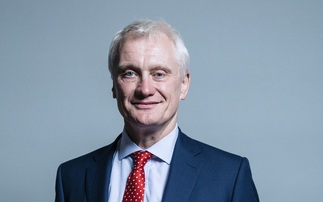The frustration contained in today's letter from green firms to Cameron and Clegg is palpable - ministers must unite behind their low-carbon plans
There is an old Fleet Street story, possibly apocryphal, about a newsroom's response to reports of a coup that came in just a couple of hours before deadline. This was back in the Cold War days when a...
To continue reading this article...
Join BusinessGreen
- Enjoy exclusive news, insights and analysis from Europe’s leading source of information on the green economy and business.
- Make smart, responsible business decisions with an eye on the latest regulatory and tech development
- Tap into our extensive archive of exclusive articles, news, analysis and guide
- Access to our new BusinessGreen intelligence service, providing you with
- > Exclusive in-depth case studies
- > Policy briefings, white papers and reports on market trends that are shaping the direction of the net zero transition
- > Our overnight briefing, expertly curated help you run a competitive and sustainable business
- > Online and interactive meetings with BusinessGreen’s editors to discuss the crucial stories and trends from the past month
Choose from 3 paid membership levels or start a 7-day no strings trial.








